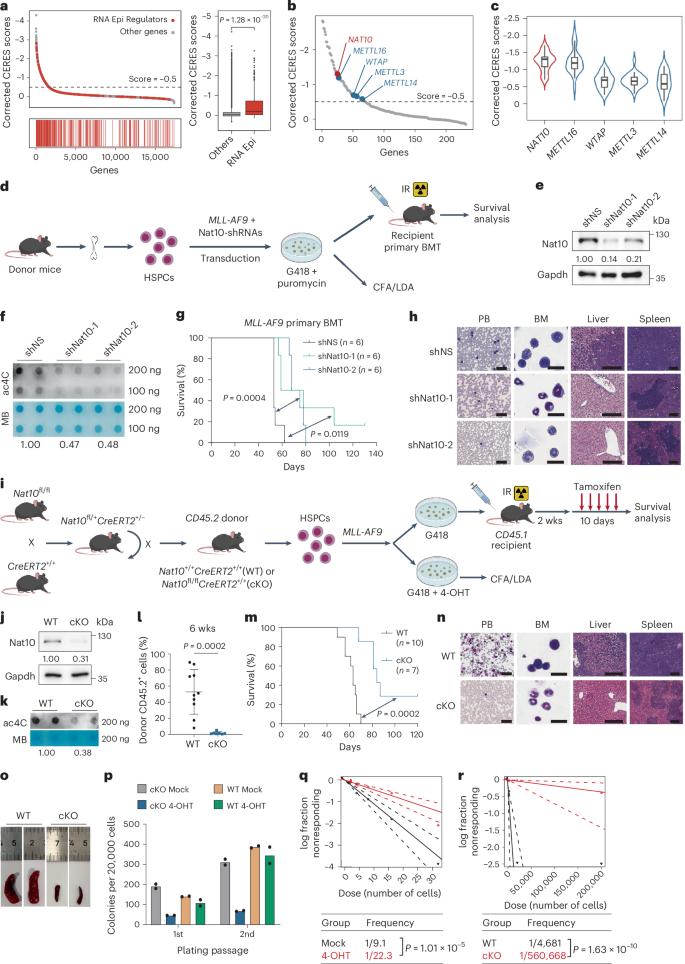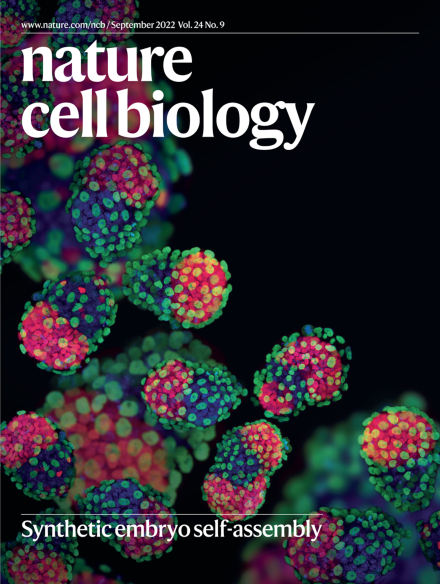NAT10-mediated mRNA N4-acetylcytidine reprograms serine metabolism to drive leukaemogenesis and stemness in acute myeloid leukaemia
IF 17.3
1区 生物学
Q1 CELL BIOLOGY
引用次数: 0
Abstract
RNA modification has emerged as an important epigenetic mechanism that controls abnormal metabolism and growth in acute myeloid leukaemia (AML). However, the roles of RNA N4-acetylcytidine (ac4C) modification in AML remain elusive. Here, we report that ac4C and its catalytic enzyme NAT10 drive leukaemogenesis and sustain self-renewal of leukaemic stem cells/leukaemia-initiating cells through reprogramming serine metabolism. Mechanistically, NAT10 facilitates exogenous serine uptake and de novo biosynthesis through ac4C-mediated translation enhancement of the serine transporter SLC1A4 and the transcription regulators HOXA9 and MENIN that activate transcription of serine synthesis pathway genes. We further characterize fludarabine as an inhibitor of NAT10 and demonstrate that pharmacological inhibition of NAT10 targets serine metabolic vulnerability, triggering substantial anti-leukaemia effects both in vitro and in vivo. Collectively, our study demonstrates the functional importance of ac4C and NAT10 in metabolism control and leukaemogenesis, providing insights into the potential of targeting NAT10 for AML therapy. Zhang, Huang, Wang, Long et al. report that NAT10 enhances serine uptake and biosynthesis in an ac4C-dependent mechanism, thereby promoting stemness and progression in acute myeloid leukaemia.


NAT10 介导的 mRNA N4-乙酰胞嘧啶重编程丝氨酸代谢,推动急性髓性白血病的白血病生成和干细胞形成
RNA 修饰已成为控制急性髓性白血病(AML)异常代谢和生长的重要表观遗传机制。然而,RNA N4-乙酰胞嘧啶(ac4C)修饰在急性髓性白血病中的作用仍然难以捉摸。在这里,我们报告了ac4C及其催化酶NAT10通过重编程丝氨酸代谢,驱动白血病干细胞/白血病诱导细胞的白血病生成并维持其自我更新。从机理上讲,NAT10通过ac4C介导的丝氨酸转运体SLC1A4翻译增强以及激活丝氨酸合成途径基因转录的转录调节因子HOXA9和MENIN,促进外源性丝氨酸的吸收和从头生物合成。我们进一步描述了作为 NAT10 抑制剂的氟达拉滨的特性,并证明 NAT10 的药理抑制针对丝氨酸代谢脆弱性,可在体外和体内引发实质性的抗白血病效应。总之,我们的研究证明了ac4C和NAT10在代谢控制和白血病发生中的重要功能,为靶向NAT10治疗急性髓细胞白血病的潜力提供了启示。
本文章由计算机程序翻译,如有差异,请以英文原文为准。
求助全文
约1分钟内获得全文
求助全文
来源期刊

Nature Cell Biology
生物-细胞生物学
CiteScore
28.40
自引率
0.90%
发文量
219
审稿时长
3 months
期刊介绍:
Nature Cell Biology, a prestigious journal, upholds a commitment to publishing papers of the highest quality across all areas of cell biology, with a particular focus on elucidating mechanisms underlying fundamental cell biological processes. The journal's broad scope encompasses various areas of interest, including but not limited to:
-Autophagy
-Cancer biology
-Cell adhesion and migration
-Cell cycle and growth
-Cell death
-Chromatin and epigenetics
-Cytoskeletal dynamics
-Developmental biology
-DNA replication and repair
-Mechanisms of human disease
-Mechanobiology
-Membrane traffic and dynamics
-Metabolism
-Nuclear organization and dynamics
-Organelle biology
-Proteolysis and quality control
-RNA biology
-Signal transduction
-Stem cell biology
 求助内容:
求助内容: 应助结果提醒方式:
应助结果提醒方式:


